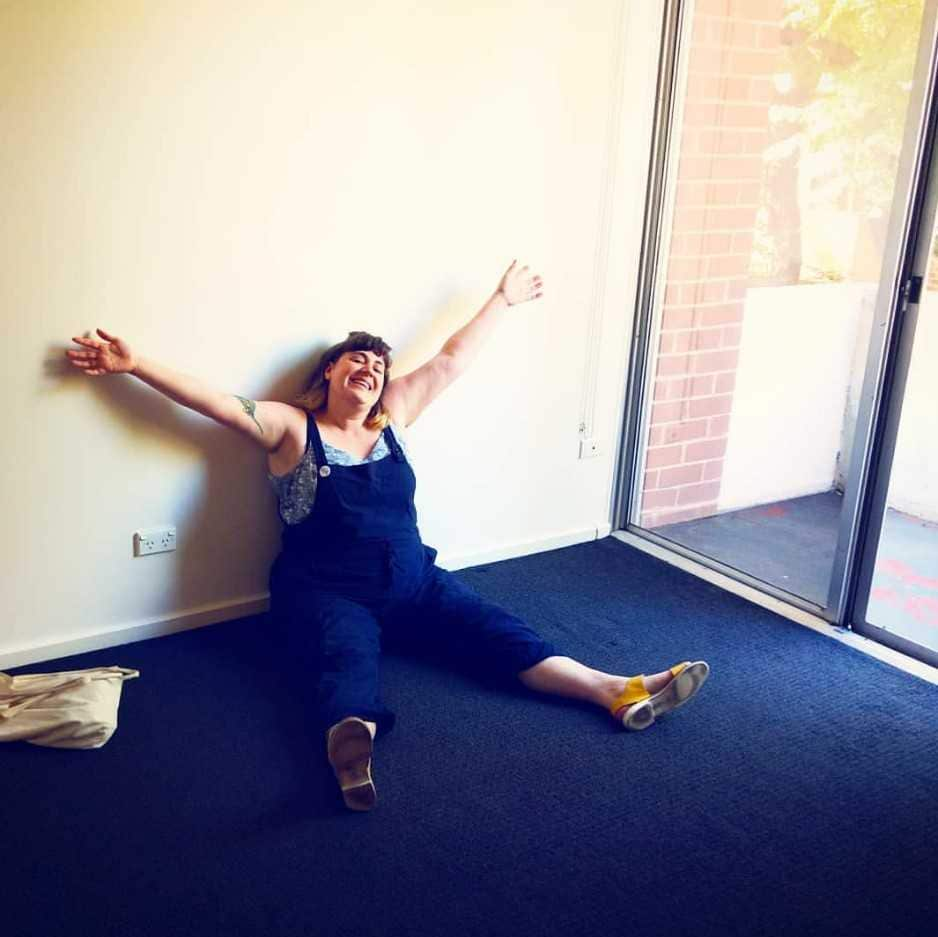In the ever-disappointing world of plus-size fashion, there’s a common refrain when discussing brands that refuse to expand into plus sizes: are they allergic to making money?
Last week, Australian sleepwear brand Peter Alexander proved that, no, they’re not allergic to making money – quite the opposite, in fact. The fashion pyjama retailer came under fire for introducing a new plus-size line with a higher price tag than their “regular”-sized garments, charging an extra $10 a pop.
If you’re a fat person, this news, while sigh-including, is probably not totally surprising. It’s long been rumoured and reported that some brands sneak what’s called a “fat tax” onto plus-sized garments. The fat tax is often justified by the notion that plus clothes require different patterns, specialist designers and greater fabric allowances to curate collections to suit fat shoppers.
The idea of charging shoppers more for plus-size garments is just fatiguing for anyone who’s ever dipped a toe in the meagre world of fat fashion in Australia
Amanda Bowes, a British fashion designer, has told the New York Times the logic of a “fat tax” is bogus. Though it does cost more to make plus-size clothing, “because of the amount of fabric used”, Bowes argues “if the pricing metric is going to be based on size, then every size should be priced differently”. And, to extend the logic of the “fat tax” even further, if 16+ sizes are priced higher because they are larger, should larger shoes for bigger feet not attract a similar “big tax”?
Aside from the missing logic links, the idea of charging shoppers more for plus-size garments is just fatiguing for anyone who’s ever dipped a toe in the meagre world of fat fashion in Australia. There are already so few options for us on the market, how’re you going to charge us more money to access just some of the options slimmer shoppers have available to them?  As a fat shopper, I’m forever on the prowl for any outlet that adds “X”s to its “L”s, whose numbers soar above 14. My eyes are always open, searching, searching for a basic f*cking white t-shirt in my size, for a decent pair of jeans or a party dress that’s not the real-life equivalent of the Homer Simpson muumuu. Contrary to apparent popular opinion in the Australian fashion industry, just because I’m fat does not mean I don’t want to look good. I love my body, and I want to dress it in good clothes that make me feel amazing.
As a fat shopper, I’m forever on the prowl for any outlet that adds “X”s to its “L”s, whose numbers soar above 14. My eyes are always open, searching, searching for a basic f*cking white t-shirt in my size, for a decent pair of jeans or a party dress that’s not the real-life equivalent of the Homer Simpson muumuu. Contrary to apparent popular opinion in the Australian fashion industry, just because I’m fat does not mean I don’t want to look good. I love my body, and I want to dress it in good clothes that make me feel amazing.

Matilda Dixon-Smith says there's a cost to fat shopping. Source: Supplied
But the Australian IRL retail experience always leaves me wanting. My mother and I search for decent stores that will cater to my size – or something close to it. Sometimes we strike gold (FYI: Uniqlo now sizes up to XXL!), but often I’m left alone in the dressing room, half dressed in a beautiful garment that won’t fit over my hips, having to call out to Mum, “Um, not this one – doesn’t quite look right”, so I can save face in front of the shop assistants.
The average size for women in the UK and Australia is now a 14, and yet few stores will stock beyond a 14, L or even a 12
This is why so many fat shoppers have turned to online shopping – where there are no humiliating changing rooms, judgemental retail workers and where the sizes reflect the way women in Australia look today. Because, whether due to a health crisis or not, the average size for women in the UK and Australia is now a 14, and yet few stores will stock beyond a 14, L or even a 12.
In the US, where the fat shopper has at least been embraced more heartily than here, some designers are finally starting to get it. Fashion designer and Project Runway winner Christian Siriano is famous for his move into plus-size lines alongside his slimmer sizes, telling fashionista he was, “It was very frustrating to hear a woman say to us, ‘you don't have my size or you don't have something that I can wear.’” And Siriano isn’t a fool; he understands that catering (equally) to all shapes and sizes positively affects his bottom line. His plus clothing, which makes up more than 50 per cent of his collections now, has helped to nearly triple his business – and he does it without “taxing” the fat women who wear his larger clothes.
Because let’s face it, being a fat shopper is dispiriting enough. Being a fat shopper is why I learned to sew my own clothes, for goodness’ sake! So it’d be cool if brands didn’t make it even more prohibitive for us to access the clothes that are actually designed for us with increased price tags. We don’t offer discounts to petite shoppers; as Bowes puts it, “it’s cruel and unfair to single out one body type”.
So thanks but no thanks, Peter Alexander. I’ll get my fat-girl pyjamas elsewhere.
Share



